Glorious Glass at Biltmore
Written By Jean Sexton
Posted 03/07/24
Updated 03/25/24
Estate History
With Chihuly at Biltmore—an exhibition featuring an all-new curation of artist Dale Chihuly’s work— now on display, we wanted to share some other types of glorious glass at the estate.
From decorative art glass to functional glassware and more, here are some interesting details about different pieces in Biltmore’s collection:
Intriguing green glass
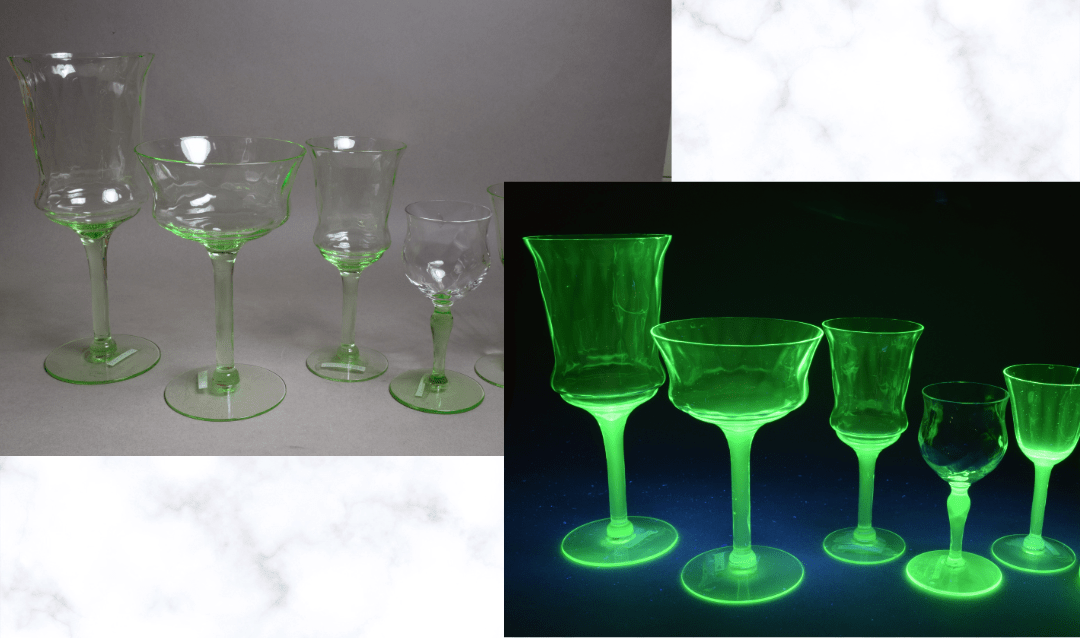
“While cleaning and photographing the china and crystal in the Butler’s Pantry, we came across an interesting set of glassware,” said Genevieve Bieniosek, Furniture Conservator. “We don’t have records that show when it was acquired, but it turned out to be uranium glass.”
Under regular lighting, uranium glass is a pale, transparent green or greenish-yellow, but when exposed to ultraviolet energy, the pieces fluoresce bright green.
“Manufacturers added uranium oxide to glass to produce a range of colors from pale greenish-yellow to bright green,” Genevieve said. “It has been used as a glass colorant since at least the 1830s, although its use was discontinued for a 15-year period beginning with WWII when uranium became more regulated.”
The LaFarge stained glass windows
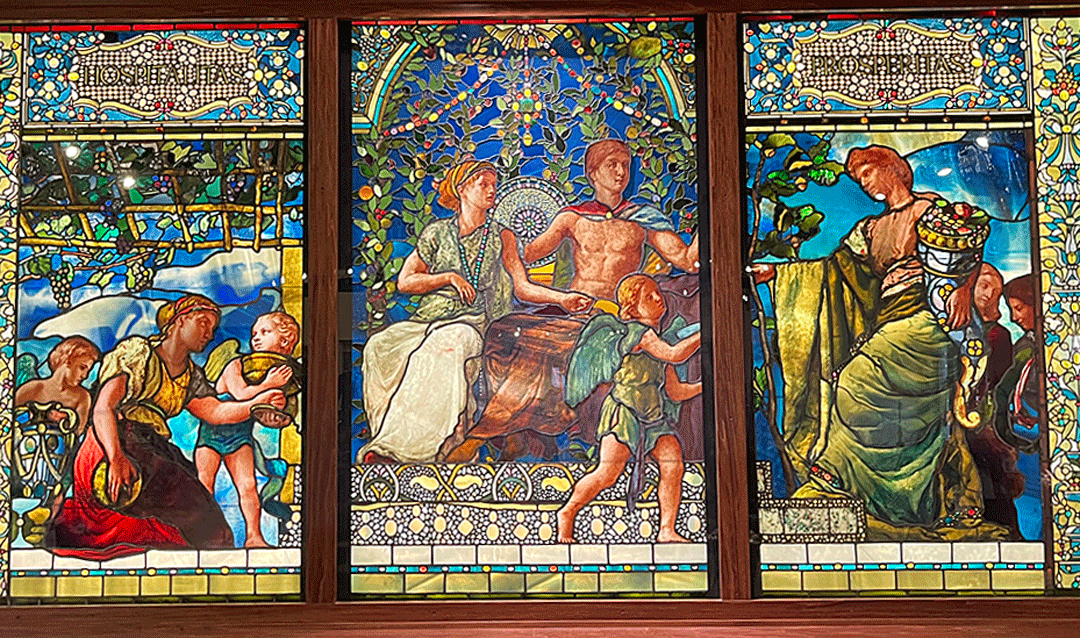
From 1880–1882, George Vanderbilt’s father, William H. Vanderbilt, built a grand house known as the Triple Palace on New York’s newly fashionable Fifth Avenue. Mr. Vanderbilt commissioned artist and interior designer John La Farge to create three stained glass windows for the central stairwell of his new home.
The Fruits of Commerce, Hospitalitas/Prosperitas, and The Golden Apples of Hesperides feature different themes and are considered to be among La Farge’s finest work. The windows showcase his experimental techniques, which influenced the work of another famous stained-glass artist: Louis Comfort Tiffany.
George Vanderbilt inherited the home after his parents’ deaths and the La Farge windows were eventually moved to Biltmore and placed in storage. The three-panel window entitled Hospitalis/Prosperitas is now displayed at Biltmore Winery.
An unusual vase
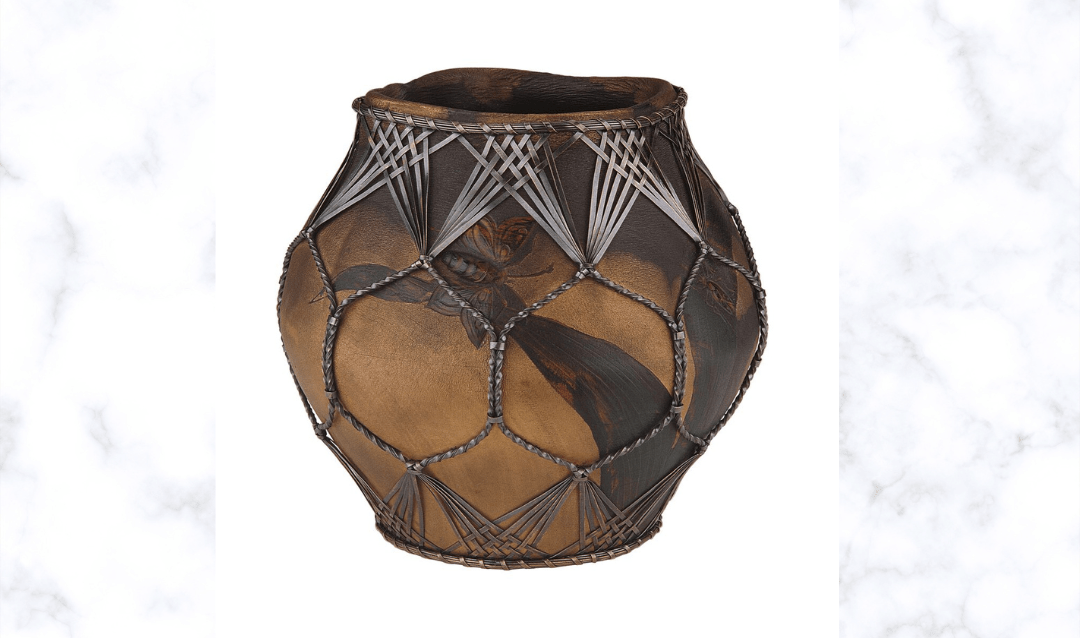
The Claude Room, one of the elegant Louis XV Suite of guest bedrooms in Biltmore House, features another unusual piece of glass—a vase created by Louis Comfort Tiffany in 1890. The hand-blown vase features layers of glass in different colors, with a gold metallic surface and woven sterling silver overlay.
Though the style is markedly different from Tiffany’s iconic stained glass lamps, it demonstrates his mastery of glassmaking techniques.
The Glassblower
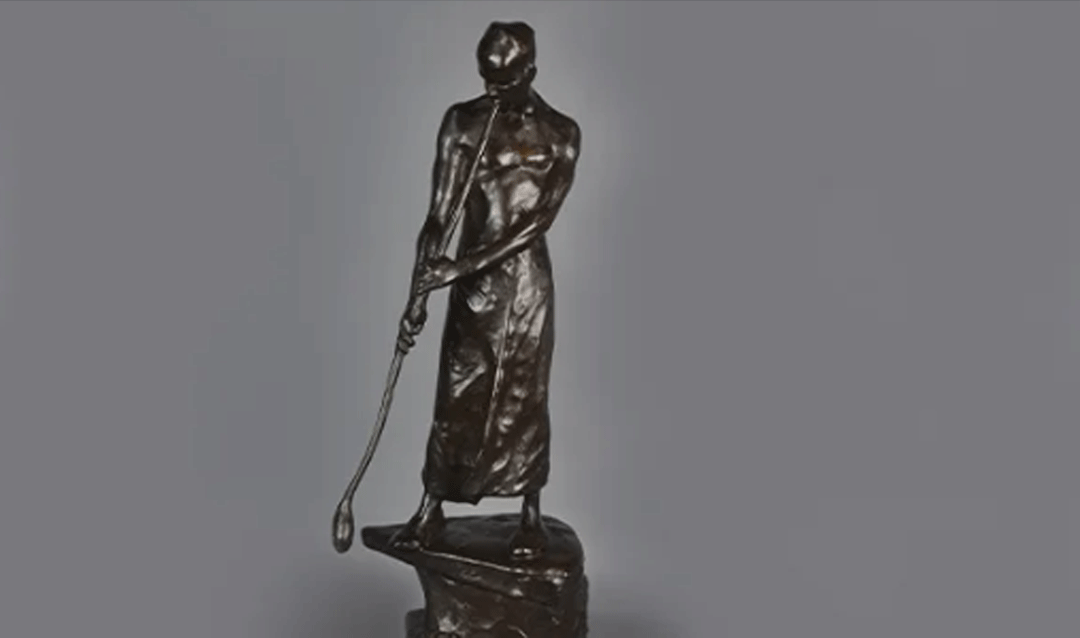
In 1913, George and Edith Vanderbilt purchased eight bronze works from an exhibition of Constantin Meunier’s work, including Le Souffleur de Verre (The Glassblower). While this sculpture is not made of glass, it faithfully captures the physical details of a glassblower at work, creating an interesting connection with the actual glass pieces.
Iris Gold and Garnet Chandelier
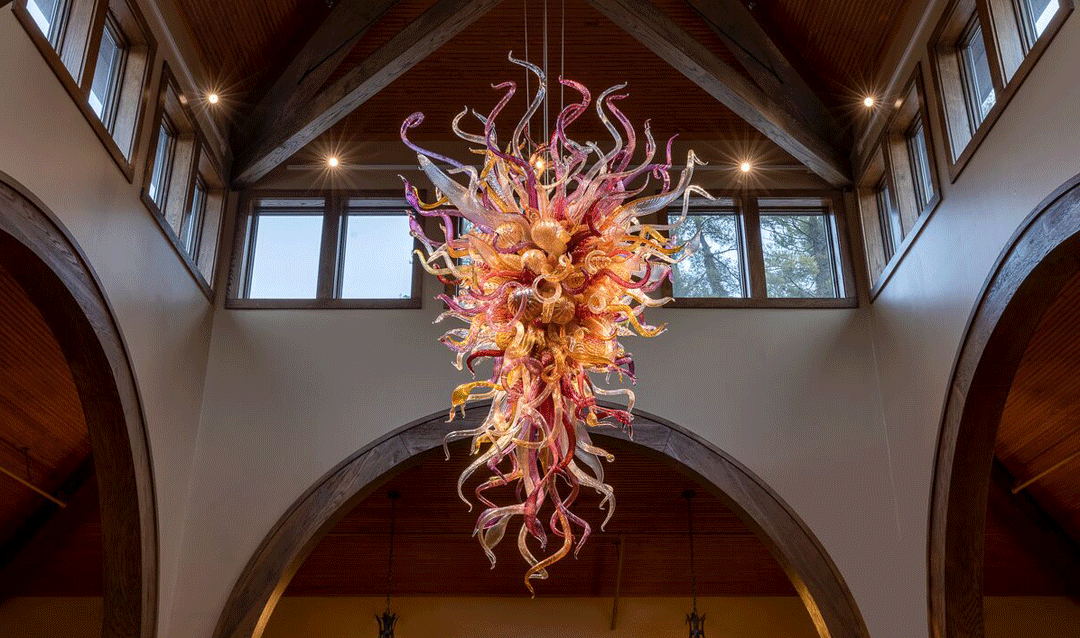
Following the successful Chihuly at Biltmore exhibition in 2018 that featured Dale Chihuly’s work in our historic gardens, Biltmore commissioned a custom Chandelier by the artist. With colors inspired by the hues of our handcrafted wines, Iris Gold and Garnet Chandelier was installed at the Winery in 2023 as part of Biltmore’s private collection.
“During his lifetime, George Vanderbilt collected a variety of fine art, including works by both Louis Comfort Tiffany and John La Farge. In their time, they helped revolutionize glass and glass art, much in the same way that Dale Chihuly has done in the last several decades. Chihuly’s transforming of traditional forms of glass and his large intricate public art installations has elevated glass art to a much higher form today,” said Darren Poupore, Biltmore’s Chief Curator.
Discover more glorious glass at Biltmore!
Plan your visit to Biltmore to enjoy the wonders of Chihuly at Biltmore, now on display. Hosted in the galleries of Amherst at Deerpark®, this all-new experience includes pedestal works, Drawings, and large-scale installations of Chandeliers, Towers, Mille Fiori, and Neon.